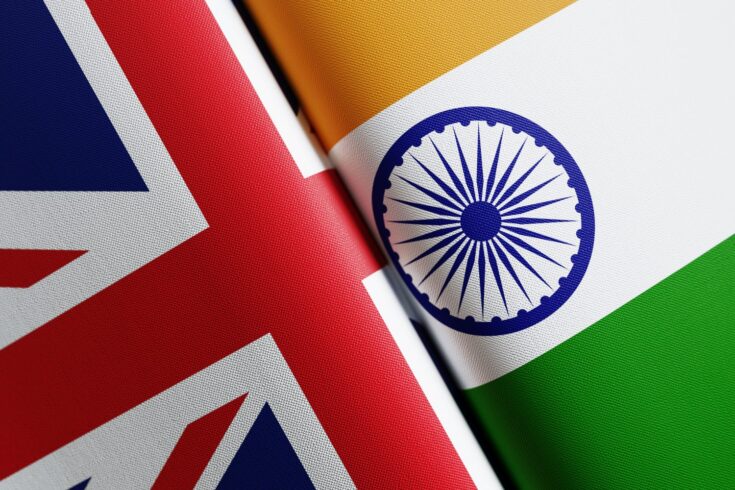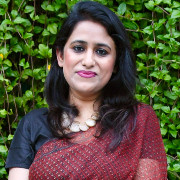What were you up to the year Robert Downey Jr created a new worldwide fanbase for the Iron Man as Tony Stark? Or the year that Shah Rukh Khan managed to convince all of India that a man becomes unrecognisable to his own wife only if he grows a moustache?! Sounds like a simpler time? It was.
This was the year 2008 – and as the world made space for superheroes and fantasies, I was (in parallel to making said space for superheroes and fantasies) becoming a small part of the big move called the ‘setting up of the Research Councils UK office in India.’
Of course, we are now the bigger, bolder and more mature UKRI India, but that growth didn’t happen overnight. It has taken us 15 years of exploring, scoping, debating, and delivering high-quality, high-impact partnerships between the researchers and innovators in the UK and their counterparts in India.
To be writing this commemorative blog as the UKRI India Director on its 15th anniversary is, therefore, a special moment for me.
The inception
When we set up the office in India in October 2008, we were given a one-point business plan: to bring about a step change in the research relationship between the UK and India. Today, after 15 years, we know that that step is worth almost £400 million of research and innovation funding commitment that we have facilitated between UKRI and our Government of India partners.
These 15 years were replete with experiences, learning, unlearning, and flourishing. One way of quantifying these is through statistics that I am very proud to share, but I will only be repeating information that you have seen in our various impact analyses and other communications. How the £400 million worth of funding commitment spans across global challenges in energy, health, food, climate, urbanisation, culture, and heritage. How this collaboration supports over 260 individual projects, and through these hundreds of researchers and businesses between our two sides.
Key milestones
But the other way of measuring these 15 years is through reliving a few key milestones in UKRI’s collaboration with our partners in India that we have traversed together. My favourite? There are a few:
India-UK Strategic Group on Antimicrobial Resistance (AMR)
One of the things we talk about tirelessly, is the need for interdisciplinarity in the way we address challenges. The need to break down silos of disciplines and work collectively towards a common goal.
In 2016, we formed an India-UK Strategic Group on AMR. The group not only brought together the UK and India as countries but also the seven UK research councils and eight Indian ministries and departments working on different aspects of AMR.
The strategic group led to the funding of nine UK-India AMR research projects with almost £20 million of joint funding. Projects covered areas ranging from the biomedical aspects of host-pathogen relationship to AMR in the environment, right down to the smart regulation of antibiotic use.
10th anniversary
The 10th anniversary of our presence in India, in 2018, was also the launch of UKRI as a unified platform combining all of the UK’s research and innovation funding into one entity.
Celebrating ten years of our presence in India by relaunching ourselves as a brand that combines our nine constituent councils in innovative ways to deliver an ambitious agenda was certainly a milestone – or two!
This reform meant that we could offer our partners in India a more efficient, streamlined framework for bilateral research and innovation engagement. And as a result, work more effectively together to understand the opportunities of the different parts of the research and innovation landscapes in both our countries.
Collaborating during the COVID-19 pandemic
More recently, during the peak of the 2020 pandemic we joined forces to better understand the severity of COVID-19 in South Asian Populations in India and the UK.
While this sounds like a standard bilateral collaboration between the two sides, the ways in which we delivered this was special and unprecedented. Teams on both sides worked seamlessly as one combined team. We grappled with family and team members stricken with the virus, and still getting to terms with doing everything remotely without access to fully functional IT systems, or even each other.
We delivered this in a truly agile fashion resulting in four UK-India projects with over £5 million of joint funding commissioned in the first co-funded, bilateral research initiative on COVID-19 for either country.
So where are we now?
We are now in a place of strength – strength that comes from success, impact, and learning.
From where I sit, the UK and India have shared not just the impact and successes of this partnership, but also the experience and learnings. There is a huge sense of achievement in seeing the results of our work reap benefits for people in both our countries and across the globe.
Some of the results of the synergies of our individual strengths include:
- reliable access to affordable and clean energy
- better farming practices resulting in higher-yield crop
- improved predictability of changing weather patterns
- a richer understanding of our joint cultural heritage and shared values
- cutting-edge technology and skills across a range of areas impacting everyday lives
Where do we go next?
This is what our anniversary event is about – we want to take a moment to raise a toast to our accomplishments, but also to set ourselves our next challenges. I hope that anyone with an interest in what the UK and India can achieve together through research and innovation, will actively participate, and leave us with something to think about.
Because in the end, real-world superheroes are those who work across boundaries to ask the most pressing questions and combine the power of their knowledge and skills to improve lives around them. One project proposal at a time.




